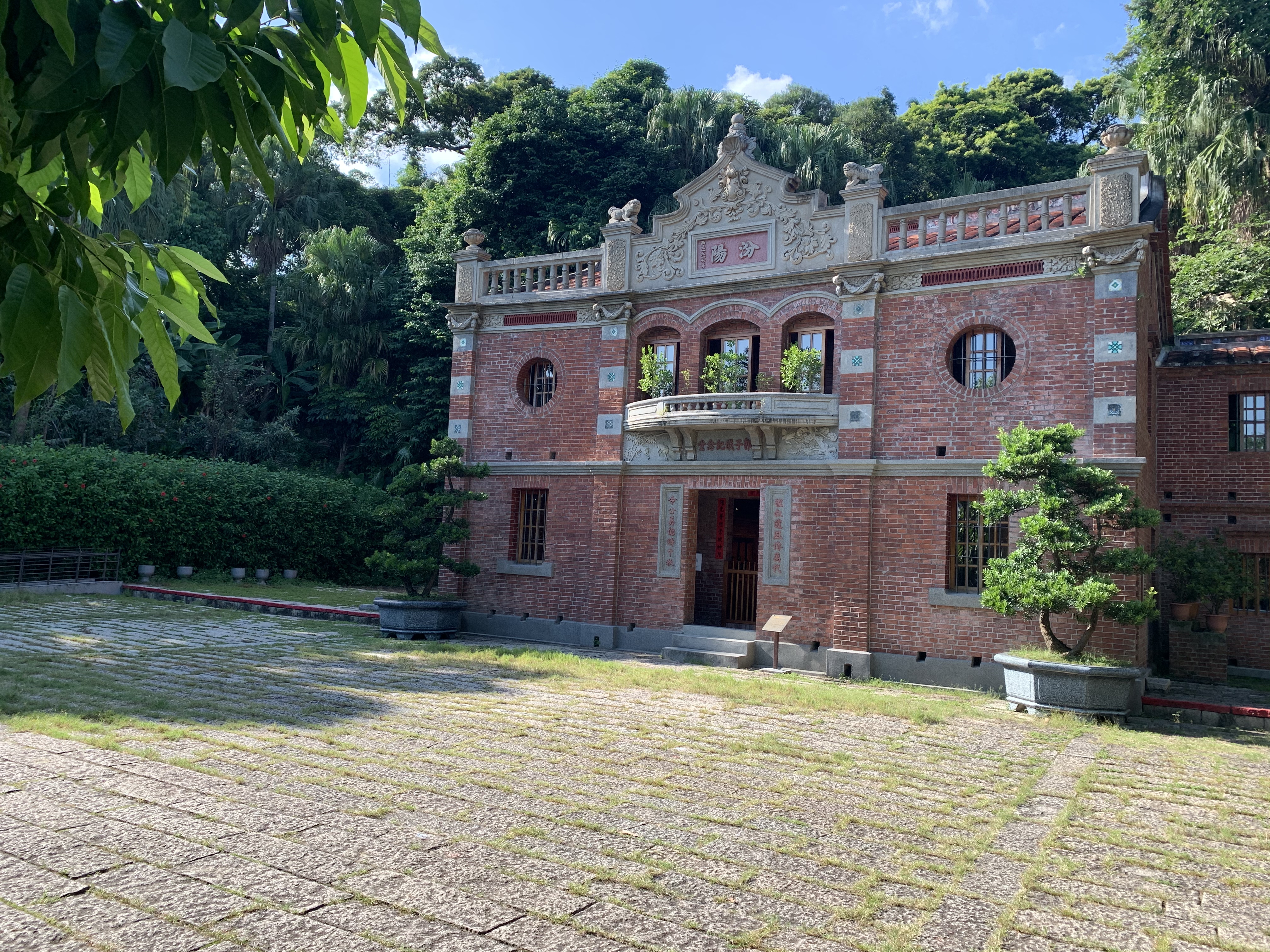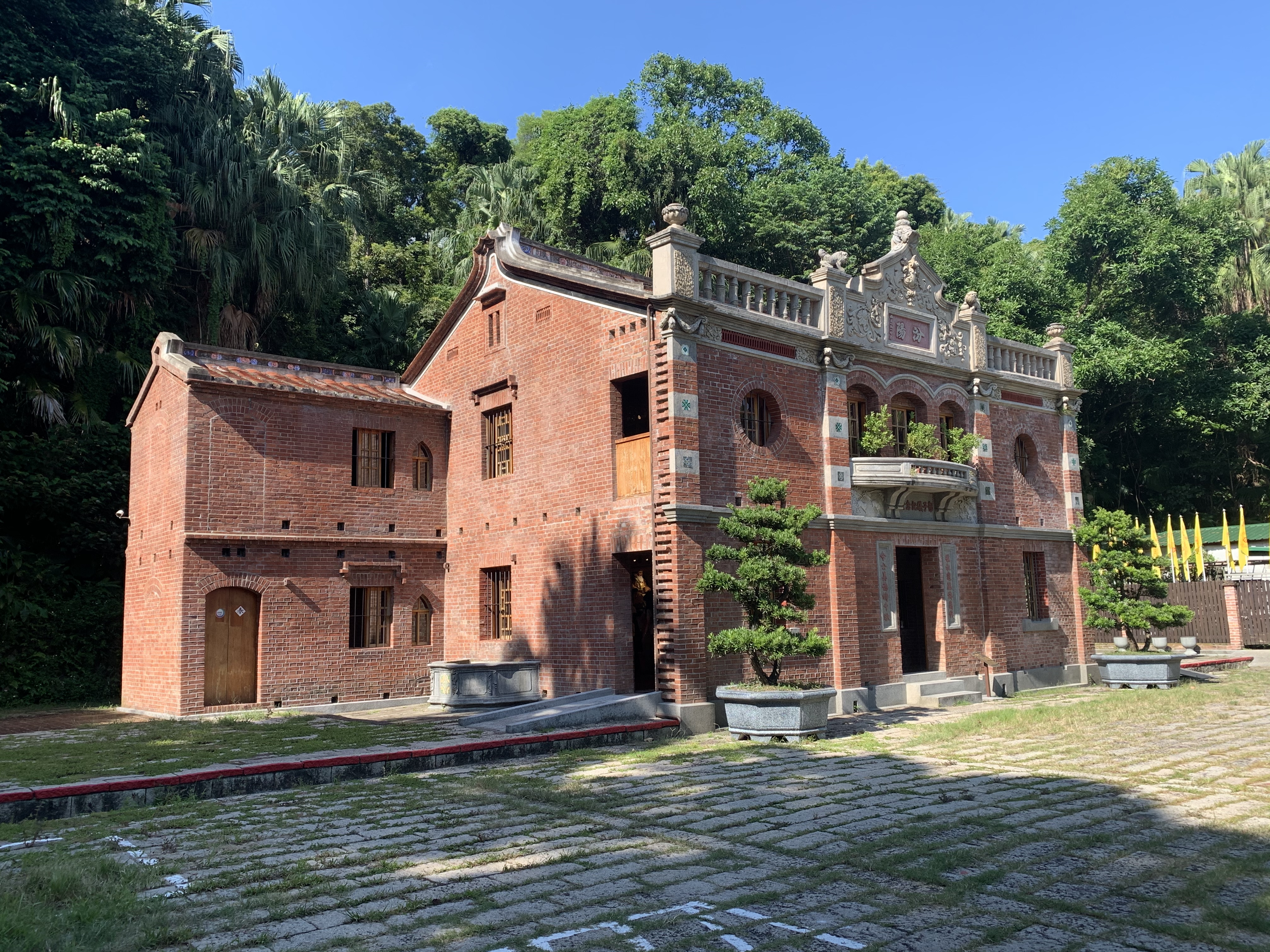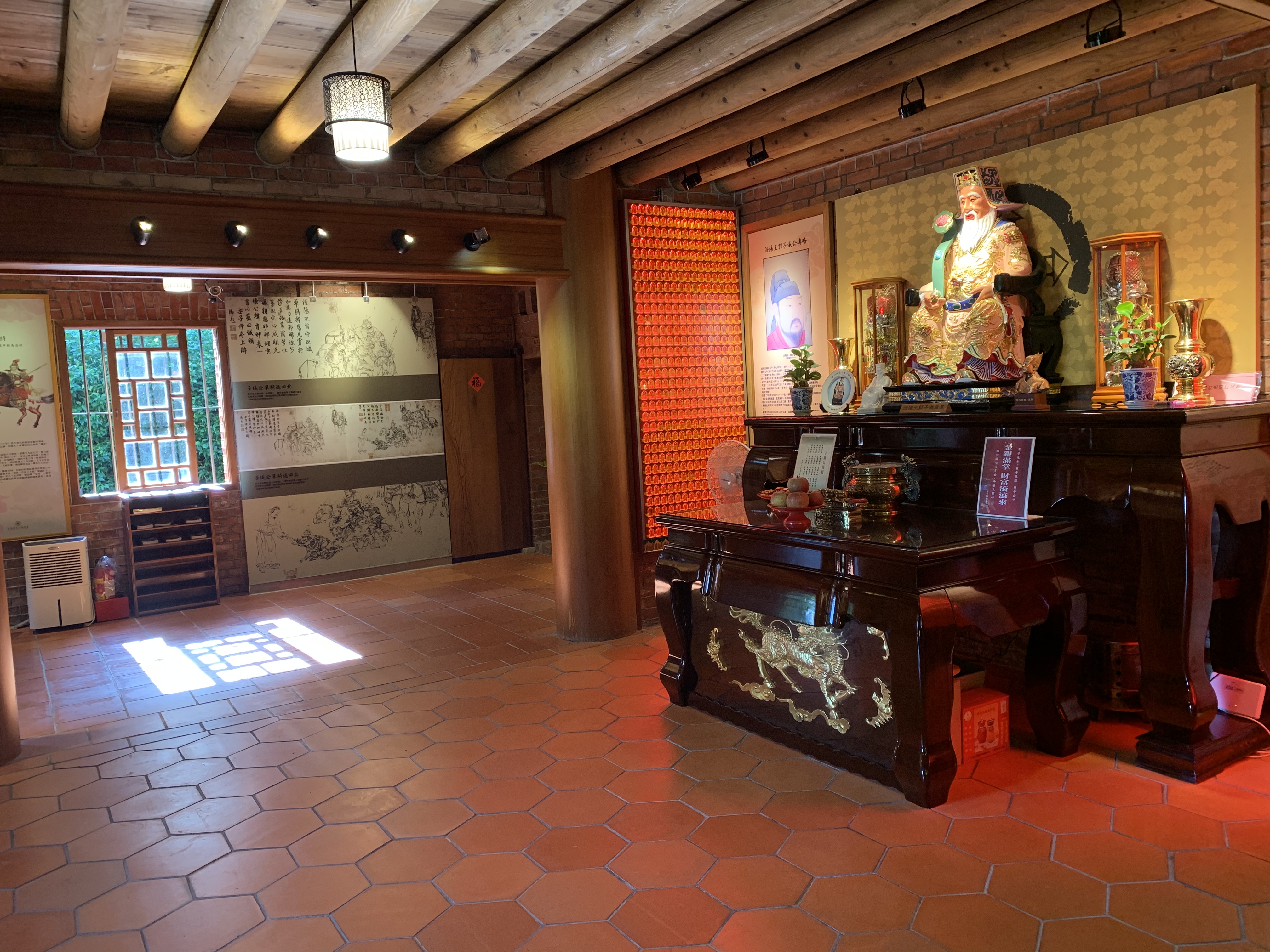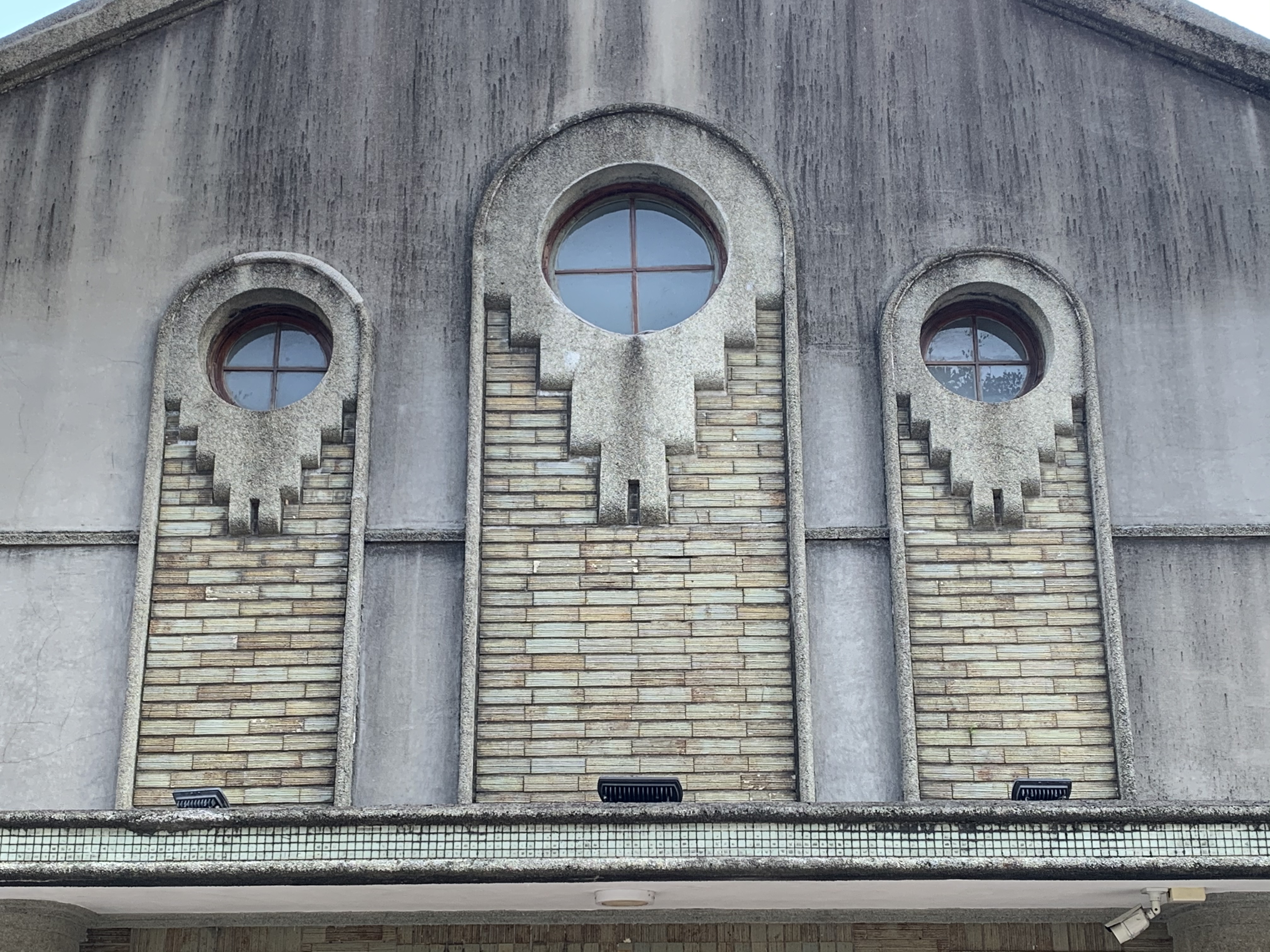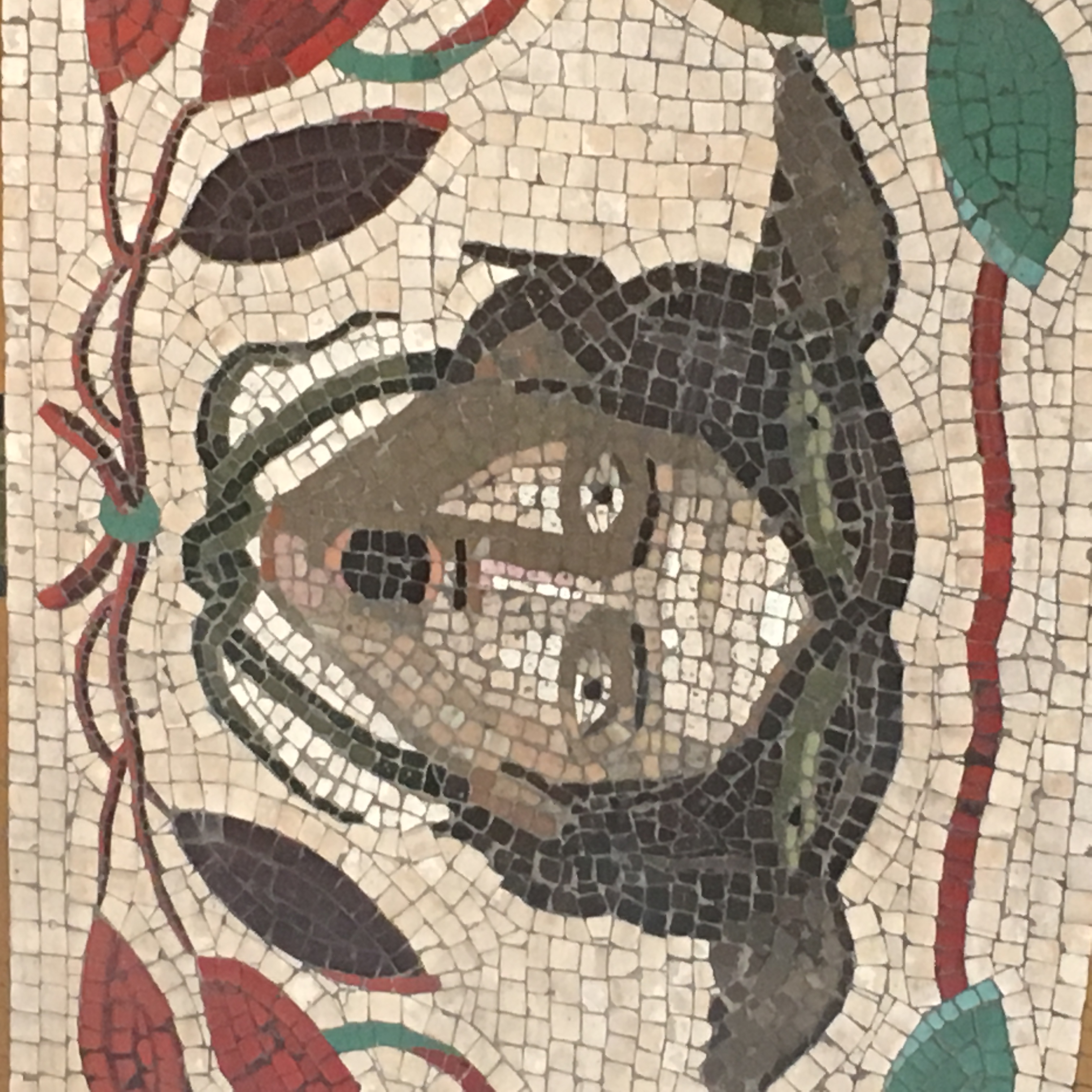
This is from a post for some movie I've long forgotten the title of.
This is Part 2 of a longer post. For Part 1, which discusses the ways in which Chiang Kai-shek is actually to blame for CCP interest in Taiwan, click here.
Because it explores historical factors that I don't think many people are aware of, that post didn't address the core of the bad argument I keep hearing -- that sure the KMT wasn't great, but it's thanks to them that Taiwan isn't a part of the People's Republic of China!
The belief here actually comes from something else: an interpretation of historical events between approximately 1949 and 1955, which places the ROC as the main bulwark against CCP designs on Taiwan. There's even a pretty terrible News Lens op-ed from a few years ago -- it's so bad that I won't link to it, but I did respond at the time -- that called Chiang "the greatest single fighter of the Chinese Communist Party, bar none", which is funny to me, because they thoroughly defeated him, and in order to hold Taiwan against them, he needed US assistance.
My main source, once again, is Hsiao-Ting Lin's Accidental State, but I'll also be drawing on other sources, including this article from the Journal of Northeast Asian Studies. I'll try to quote frequently from it for those who don't have access.
I also want to say here that anyone who really knows Taiwanese history is likely already aware of everything I'm about to say; nothing here will surprise you. Instead, this is a sort of self-service: instead of writing the same reply to such comments over and over again, I'm putting it all in one handy blog post that I (and you!) can just link to whenever it inevitably comes up. Again.
Here's the summary: despite some victories by the Nationalists, we don't have Chiang or his government to thank for Taiwan being saved from incorporation into the People's Republic of China. In fact, it was mostly the US's efforts to contain the CCP that led to Taiwan staying out of PRC hands. This had nothing to do with any sort of sincere care for the ROC on the part of the US, and certainly had nothing at all to do with any sort of goodwill toward Taiwan. Although the Nationalists did score some victories toward the end of the civil war, the lasting repellent that kept the PRC out of Taiwan was (somewhat grudging) American assistance to the ROC, due to a US desire to secure a defense perimeter around the PRC and renewed desire to include Taiwan in that defensive corridor due to the outbreak of the Korean War.
From the link (all emphasis mine):
If there had not been a Korean War, the Chinese Communists would probably have invaded Taiwan in 1950. After the outbreak of the Korean War, the United States began to reverse its hands-off policy toward the Chinese Nationalists on Taiwan. The Korean War first compelled the United States to grant military aid to Taiwan and then put the island under U.S. protection. The war forestalled the deterioration of the ROC' s international status, but the legal status of Taiwan became undetermined in the eyes of U.S. policymakers....
Both attacks compelled the United States to go to war, and on both occasions this simultaneously saved the Kuomintang (KMT) from total defeat. One high-ranking KMT official even described the Korean War as the Sian incident in reverse - an unexpected twist of fate that saved the KMT from total annihilation. 2 Before the outbreak of the Korean War, KMT-controlled Taiwan (then called Formosa) fell outside the U.S. defense perimeter, and the Truman administration had assumed the final defeat of the KMT to be only a matter of time. Immediately after the outbreak of the war, President Harry S. Truman decided to neutralize Taiwan, both to protect it from communist invasion and to prevent the KMT from using it as a base to mount an assault on the mainland. The Korean War also forced President Truman and Secretary of State Dean Acheson to resume their entanglement with the KMT.
The details of how all this happened are a bit muddier. Accidental State asserts that the Allies considered many options at different points, including simply allowing the PRC to take Taiwan, a United Nations trusteeship that would help Taiwan transition from Japanese colonial rule and backing of Formosan home rule groups; in other words, post-war US support for the ROC was far shakier and more ambivalent than people seem to believe. Lin (Accidental State) agrees with Lin (article quoted above) that there was a period when Communist takeover of Taiwan was considered "inevitable", and the US was, for a time, prepared to just let that happen. Around 1949-1950, the US made it clear that it would not interfere in the Chinese civil war and that it considered Taiwan to be a part of China. To me, it seems US support was more ambivalent rather than outright dismissive in those years, an ambivalence which remained through 1952, but that might be a topic for a later post.
In Untying the Knot, Richard Bush dismisses this idea that the US ever seriously considered a "trusteeship":
FDR had his own plans for the island, and allowing international trusteeship of the island and a plebiscite to elicit the wishes of its people was not one of them. In his vision for postwar peace and security, "four policemen" -- the United Sates, Britain, the Soviet Union and China -- would insist on disarmament by most other countries and enforce it through a system of military bases.
In fact, the idea of UN trusteeship, while it was never of interest to FDR, was of great interest to others, including several Senators and Dean Rusk (who would eventually become Secretary of State) recommended removing Chiang and UN trusteeship for Taiwan to then-Secretary of State Dean Acheson. Acheson seems to have completely ignored Rusk's letter, and was planning to enlist Sun Liren in a plot to remove Chiang and put Taiwan under new administration, but it never came to be. By 1950 it was considered a bad idea to support an independent Taiwan for a variety of reasons that I mostly disagree with, including a lack of US control over the outcome.
That whole thing makes the pro-democracy, pro-self-determination, anti-war, anti-Big Power military-enforced imperialism liberal in me want to barf, but hey, that's history for you. It also clarifies that the US has never, at any point, held a sincere interest in the wishes and best interests of the people of Taiwan. It was always about power. The only way in which I can sign onto that as acceptable is my belief that the PRC did need to be stopped, and still needs to be stopped today, and wagged fingers and disapproving looks were never (and are never) going to accomplish that. Sometimes that entails accepting realities that I really wish weren't...real.
On everything else, though, he agrees with Lin and Lin:
In the Truman administration in 1949, there was a consensus that a Communist takeover was both likely -- again because of the Nationalists' political and military ineptitude -- and detrimental to U.S. security interests....
North Korea's invasion of South Korea in June 1950 saved Taiwan and the ROC. Washington -- afraid that the invasion of South Korea was part of a larger campaign by the communists to extend their control and wanting to end the ROC's continuing minor attacks against the mainland -- deployed the 7th fleet to the Taiwan Strait to prevent the PRC and ROC from attacking each other. The net effect, however, was to ensure Chiang's survival. The ROC is was able to retain its seat in the United Nations and diplomatic relations with a majority of the world's countries [for the time being]. The Truman administration justified its policy reversal by saying that because there had been no peace treaty with Japan to dispose of "ownership" of Taiwan, its legal status (whether it was indeed part of China) had not been determined; thus its security was an international issue, not a purely domestic one.
You don't actually care about Taiwan for Taiwan's sake just as you've never cared about any other country for its own sake, and you never did, but Taiwan still needed the PRC stopped. So thanks, America!
But also no thanks, because your previous ambivalence and lack of interest in home rule or international trusteeship is what precipitated the KMT occupation and subsequent military dictatorship and campaign of mass murder in the following decades. Yet you seemed fine with that. Yikes, America!
Some might use that information to argue that for the brief period that it lacked strong US support, that the ROC did, in fact, "save" Taiwan by staving off the Communists without US help.
And I can't deny that they won a few victories (Guningtou being the most prominent one that I'm aware of) in that time period. They were, according to Accidental State, "at least able to stop and search ships flying the flags of either Nationalist China or the PRC in the territorial waters surrounding Taiwan and the other Nationals-controlled isles to prevent military supplies from reaching Communist-held ports" and they had a "weak but still-functional naval capacity". (Why they would also search ships flying the Nationalist flag is unclear to me, but also irrelevant here.)
But, the Communists were exhausted -- I can't find the source but I've read somewhere that the PRC attack on Guningtou was carried out by a rather ragtag group of falling-apart junks, they had insufficient supplies, and the main reason the ROC won was because one of their ships was in Kinmen awaiting a delivery of foodstuffs that they were going to smuggle to China. Indeed, they were still putting down "bandits" across China, and not only is the Taiwan Strait in fact ridiculously hard to navigate but also Taiwan itself is difficult to land on as an invading force. So, sure, we can give some credit where it's due, but there was a lot of luck involved, too.
Let's not forget, however, that not only did the ROC's claim to Taiwan precipitate the Communists' interest in the first place, but their landing here also likely redoubled CCP desire to take Taiwan. From Bush:
Ever since the Cairo Declaration of December 1943, Mao Zedong and his revolutionary colleagues had set their sights on seizing the island as well as the mainland, and Taiwan became part of their mission of national recovery and unification. That their civil war rivals, whom they termed the "Chiang Kai-shek reactionary clique" planned to mount a last ditch stand on Taiwan was all the more reason to take the island.
In fact, those years when one might argue that the KMT bravely and successfully fought off the PRC looked very different from the perspective of Chiang and his minions. Accidental State describes Chiang's attitude at this time as:
so disheartened that, at one point in early June [1950], he seemed to truly believe it was no longer possible for him to find a living space in this world. In his personal diary around this time, Chiang, despite a despairing situation, still hoped against hope to fight against the "dark forces" for his very survival to the last...Adopting the posture of apparent self-abegnation that he had taken with President Truman, on June 15 Chiang passed the following message to MacArthur..."The Generalissimo, aware of teh danger of his position, is agreeable to accept American high command in every category and hopes to interest General MacArthur to accept this responsibility...soliciting his advice, guidance and direction."
Ha ha.
Sorry, I just hate Chiang Kai-shek so much that any despair of his, no matter how far in the past and even though he's dead and rotting at Cihu, gives me great joy.
Given that, what honestly matters more from a historical perspective is what forces helped keep the PRC away long-term. And, again, the answer to that is US strategic interests, not any sort of military genius or salvation by the ROC.
Lin goes on to call Chiang's solicitation of a mutual defense treaty with the US in the early 1950s as "desperate", and discusses in detail how Taipei anticipated that the outbreak of war in Korea would need to a US need to engage with them more proactively, and might even give them the necessary "in" to get the US involved in their desire to re-take China. They wanted nothing more than to be included in the US defense perimeter, their initial exclusion evoking the terror in Chiang outlined above. In 1950, Chiang even offered to send 33,000 troops to the Korean war effort, which the US rejected. From the linked article:
President Truman objected to MacArthur's suggestion of a "military policy of aggression" and he had deliberately rejected President Chiang Kaishek's offer to send 33,000 Nationalist troops to assist South Korea because "it would be a little inconsistent to spend American money to protect an island while its natural defenders were somewhere else."
They did eventually get their wish:
The People's Republic of China's (PRC) intervention in the Korean War struck the U.S. Eighth Army and X Corps a heavy blow in November 1950, and the JCS [Joint Chiefs of Staff] began to question President Truman's military neutralization of Formosa. On November 20, 1950, the JCS sent the Department of Defense a memorandum, to which acting Secretary of Defense Robert Lovett concurred....
The JCS then emphasized "the strategic importance of Formosa" and suggested that "it would be desirable to have port facilities and airfield on Formosa available to the United States," if a full-scale war should develop against Communist China and the Soviet Union. The new Secretary of Defense George C. Marshall, who was not as supportive of the KMT as his predecessor Louis Johnson, argued that Taiwan was "of no particular strategic importance" in U.S. hands, but it "would be of disastrous importance if it were held by an enemy." In December 1950, Truman indicated to British Prime Minister Clement Attlee that Chiang Kai-shek intended to get the United States involved militarily on the Chinese mainland. Under pressure from the U.S. Senate, Truman stated the United States would not allow Formosa to fall into Communist hands.
By January 1951, Taiwan had received military hardware worth US $29 million....Later that same month, the State Department instructed the U.S. embassy in Taipei to exchange notes with the ROC Ministry of Foreign Affairs, which led to a Mutual Defense Assistance Agreement (MDAA) between the two governments. The MDAA was designed to legitimize the use of incoming U.S. military aid to Formosa for the island's internal security and self-defense.
The Korean War was so central to the continued existence of Taiwan that its end was considered a potential problem by the ROC:
If the Korean War was the salvation of the ROC, an armistice in Korea could naturally complicate the U.S.-Taiwan security relationship. On March 19, 1953, ROC Ambassador Wellington Koo explored the question of a U.S.- ROC mutual security pact, but received a cold response from Secretary of State Dulles. 4n In June 1953, Chiang Kai-shek wrote at least two letters to President Eisenhower probing the possibility of U.S.-initiated Asian multilateral mutual security pacts. 45 Although Eisenhower believed that a mutual security arrangement must come from the Asian nations themselves, by August 1953 the United States had concluded mutual defense treaties with Japan, South Korea, the Philippines, Australia, and New Zealand.
The ROC government took the initiative and handed a draft U.S.-ROC mutual security pact to U.S. Ambassador Rankin on December 18, 1953.
And if it wasn't clear that US aid to Taiwan at that time was aimed at helping the Nationalists defend an island they honestly could not hold on their own:
On October 7, 1954, President Eisenhower revealed to Dulles that he had decided to conclude a security treaty with the ROC provided that Generalissimo Chiang was prepared to assume a defensive posture on Taiwan....
In January 1955 when the Mutual Defense Treaty between the United States and the ROC was pending ratification by the U.S. Congress, PRC forces attacked some small offshore positions, including the I-chiang and Tachen islands. At a NSC meeting on January 20, Dulles suggested the United States grant logistical support to the ROC to evaluate the Ta-chen islands and that President Eisenhower be authorized by Congress to use forces in the Taiwan Strait if necessary. On January 29, Congress voted favorably on the so-called Formosa Resolution authorizing Eisenhower to "employ the Armed Forces of the United States for protecting the security of Formosa, the Pescadores and related positions and territories of that area." The Formosa Resolution implicitly granted protection to Quemoy and Matsu.
I reiterate: without US help, the Communists would have taken Taiwan -- and sooner rather than later -- an interest the CCP only cultivated in the first place because the ROC claimed it and then retreated there. Chiang Kai-shek was desperate and despondent.
He is not the hero of staving off the Communists that you think he is. He is not the hero of anything unless you think mass murder is great.
This is also the situation which led to Taiwan's status being undetermined rather than agreed-upon as a part of China, a topic that also deserves its own post. It's worth remembering that even then-foreign minister to the ROC George Kung-chao Yeh knew that. The KMT later playing at Taiwan's status being clear in an attempt to close the door to independence is an absolute joke at odds with their own history.
In these and the following years, US aid to Taiwan spiked dramatically. Jacoby (U.S. Aid to Taiwan) first says military assistance between 1952 and 1965 reached a total of US$2.5 billion, but his later chart says $368 million. Though I'm not sure where the first number comes from, the exact number is less important than the fact that it was a lot. From Lin (the article, not the Accidental State author):
Without U.S. economic assistance in the early 1950s, Taiwan's economy might possibly have collapsed. In 1950 alone, retail prices in Taiwan rose 58 percent, from mid-1949 to 1951 wholesale prices rose 400 percent, and by early 1951, ROC-held gold and foreign exchange reserves were nearly exhausted....Approximately 80 percent of the national budget went to the military, so the island's economy could be sustained only with external assistance. An NSC report pointed out that "had it not been for increased MSA [Mutual Security Agency] aid during the fiscal years 1951 and 1952, a serious inflationary situation would have developed which might have well led to complete economic collapse.”
All of this aid was not meant just to bolster Taiwan's defense capability, but also to make the island more self-sufficient, a goal which was eventually reached.
Also -- oops, it looks like I just made an argument that US strategic interests, not brilliant economic planning on the part of the KMT, is what kickstarted the Taiwan Miracle.
Let's not forget, however, that 1952-1965 more or less correlated with the White Terror years. So...thanks, America. But also yikes, America!
I'm not trying to convince you here that the US is Taiwan's good friend. It's not -- yet again, a topic for an entirely different post. What I am trying to convince you of is simple:
Like them, hate them or grudgingly tolerate them as the devil we can make a deal with because they're not the ones pointing missiles at us, the US had more to do with repelling a PRC takeover of this country than Chiang Kai-shek and his merry band of murderers ever did.




